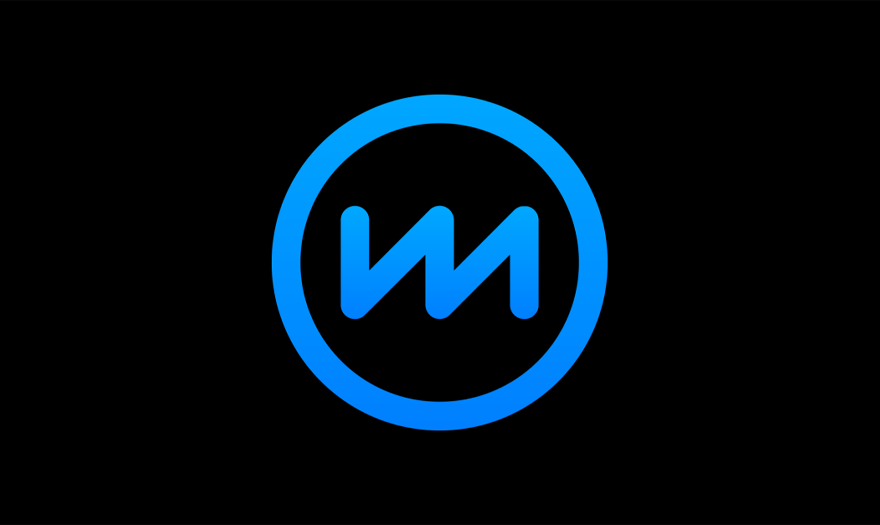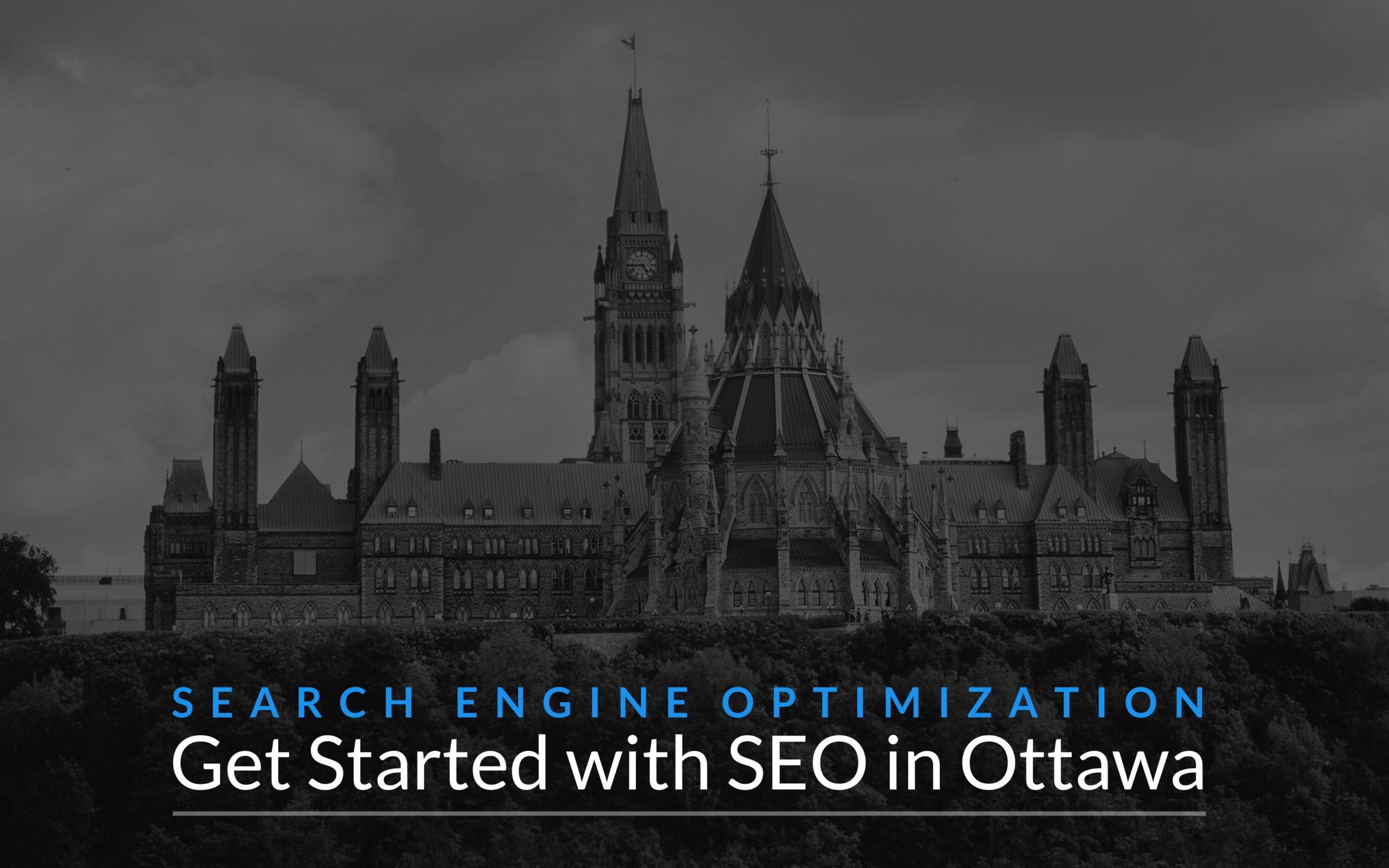
Are you looking to get the most out of your website with search engine optimization (SEO) in Ottawa?
In 2021, organic search traffic makes up about 53% of all website traffic, which is more than paid traffic and social media traffic combined.
So when it comes to marketing your Ottawa business long term, it only makes sense to have SEO as a priority.
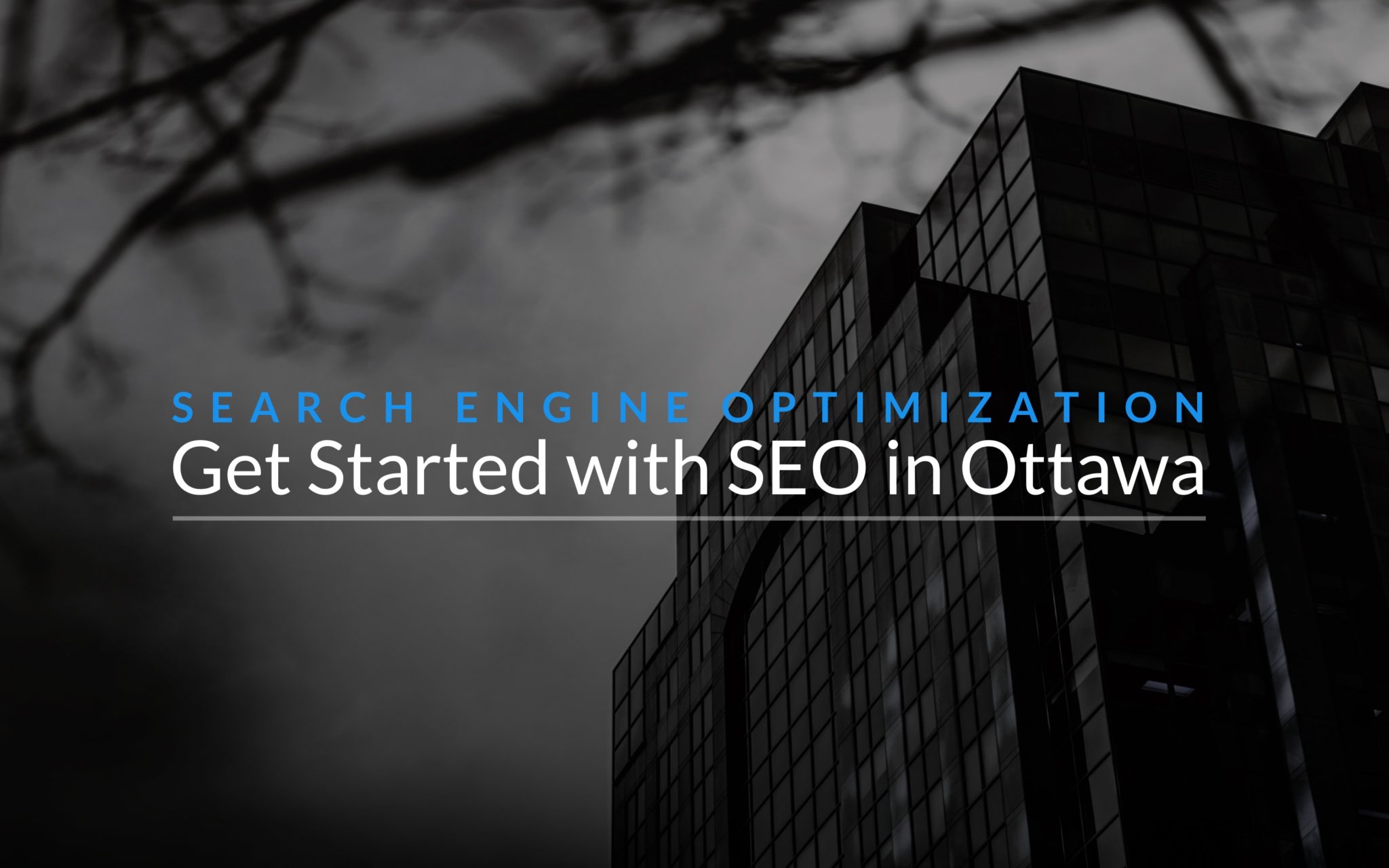
Why Your Ottawa Business Needs SEO
Business owners and customers alike, we’re all searching for something. Searching for clients, searching for services or searching for products.
When doing so, we use our phones, tablets, computers and virtual assistants to conduct these searches, looking for the best result.
With SEO, your business can reach the top of your audience’s search results. In doing so, you can get a consistent flow of customers ready to buy your product or pay for your services.
Here’s how your Ottawa business benefits from SEO
For this example, let’s say you own and operate a small auto detailing business in Kanata and you’re looking for more clients.
Try to think like you’re in the mind of a potential client. What would they be searching if they were looking for a detailing business like yours?
Here’s a great one: “car detailing kanata” with up to 210 searches each month, or even “car wash kanata” with an average of 110 searches per month.
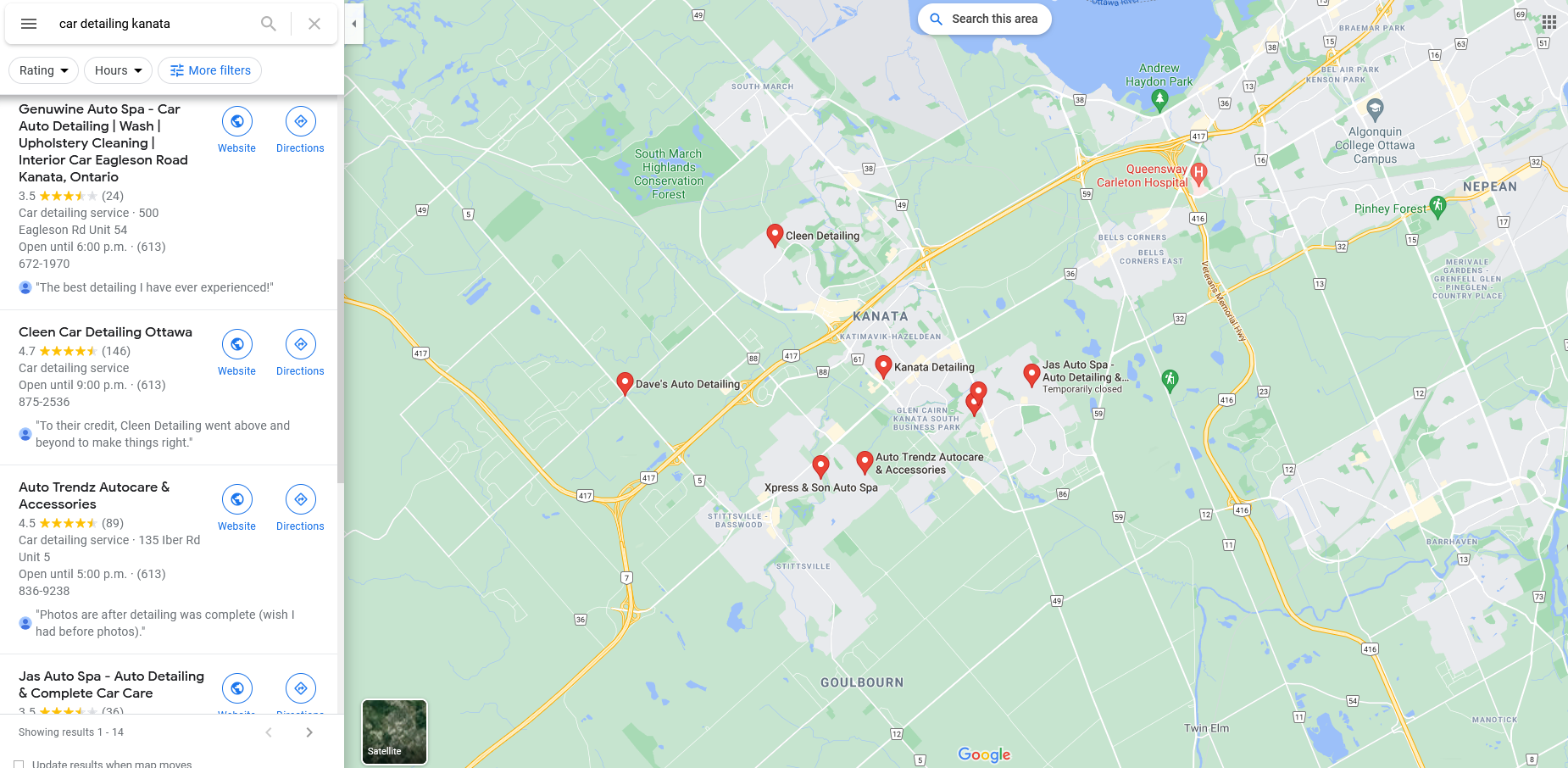
If they’re searching for a detailing services and your website is optimized to rank for that keyword on search engines (like Google), they will find your business.
Now, let’s get started with the basics of SEO and how it can help drive valuable search traffic to the website of your Ottawa business.
Table of Contents
1. Keyword Research
2. Analytics
3. On-Page SEO
4. Off-Page SEO
5. Local SEO
The Complete Guide to Ottawa SEO in 2021
1. Keyword Research
The most efficient way to kickstart your SEO journey is with keyword research.
In brief, keyword research is just as the name suggests, it consists of conducting research to find keywords related to your business. More specifically, keywords which your audience is searching to analyze ranking opportunities.
Of these keywords, you’ll find that some only get a few searches per month, and some could have as much as several thousand.
Like most things, it’s not as simple as saying “I’ll go for the big number”. You have to factor in keyword competition, click through rate and a number of other ranking metrics.
For example, if you’re in the Ottawa car detailing industry, keyword research can be as simple as searching for “car detailing ottawa” in Google’s keyword planner.

Google provides you with the average monthly search volume, Google ads bid range and competition score.
Evidently, your auto detailing website may already mention some (if not all) of these keywords, but that’s the beauty of keyword research.
While you can do just fine targeting the popular keywords, you’re more likely to thrive when you target niche topics and long tail keywords.Long tail keywords will generally have much less competition, lower bid ranges for ads and less search volume.

When starting off your SEO efforts, stick to low competition keywords, even if they have less monthly search volume. Before you can rank for the popular keywords, you’ll have to settle for those with less competition.
Plus, any small amount of organic traffic is better than none, which is what you would get by only targeting popular terms in your industry.
Obviously, like all things SEO, there’s a lot more to it than that. For now though, I recommend you stick to the basics and get familiar with Google’s keyword planner tool.
2. Track & Measure Your SEO Results
Before optimizing your website and its pages for optimal search rankings, you’ll want to set up keyword tracking and conversion tracking. Without properly setting up your Google Analytics and Google My Business profile, you can’t ensure that your website is poised for digital prosperity.

For that reason, we’ve placed this essential step just before you can begin the rewarding and enjoyable search engine optimization step of On-Page SEO.
Thankfully, Google provides free resources to get you setup with Google Analytics tracking, Google Search Console and conversion tracking in their help center.
Getting set up with analytics & conversion tracking
Google Analytics Tracking: Get started with Analytics
Google Search Console: Search Console Starter Guide
Conversion Tracking: Different ways to track conversions Additionally, you could benefit from using other popular SEO tools such as MozBar, Semrush and Ahrefs. Though, you’ll need to be aware that these tools can come with a price tag or free use limitations.
Have we lost you? If all this SEO talk has you confused or worried, you can let WebMarketers take the lead in your Ottawa SEO efforts.
As a matter of fact, we’ll be more than happy to help your Ottawa business succeed in this digital age. Let’s have a chat!
3. On-Page SEO
More than ever, obtaining organic search traffic requires that we optimize our pages to meet the standards set by search engines like Google.
Earlier, I explained very generally what SEO was and why it’s important for your Ottawa business.
Now, we’ll dive into the details, more specifically what on-page SEO is and how you can get started.
What is it?
On-page SEO is a method used widely to optimize page content for both search engines and website visitors.
Essentially, on-page SEO includes some common practices like the optimization of title tags, heading tags, meta description, alt tags, page speed and page content.
Title Tags
Title tags are the HTML element which specifies the title of a website page.
They are displayed in two places: on the search engine results page as the headline for a website and as the title for that page’s tab.

Why are title tags important?
To explain it briefly, title tags allow search engines and visitors to understand the main topic and purpose of a page.
Whether visitors come across your page on search engines or social media, title tags will generally be the first text they see.
Writing a good title tag
While it may seem simple, there are a lot of best practices, metrics and limits to consider when writing title tags.
To write effective title tags, you have to consider the following:
● Title Length
● Keyword Density
● Branding
● Click-Through-Rate
● RelevanceTo learn more about title tags, feel free to check out this guide on title tags by moz.com.
Heading Tags
The first thing to know about heading tags is that there are 6 different types: H1, H2, H3, H4, H5 and H6. I could write a whole blog on the importance and implementation of good heading structure, but for now I’ll stick to the basics.
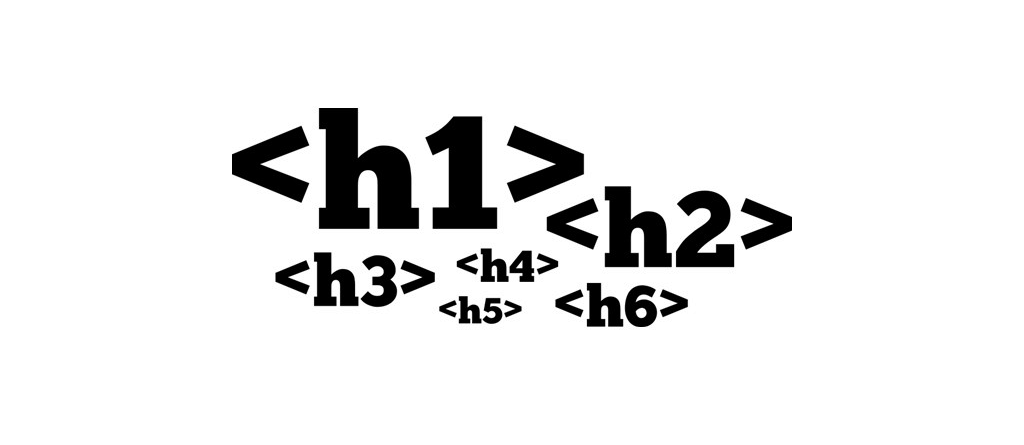
Essentially, your page headings can help search engines and page visitors distinguish sections on your page.
As opposed to filtering through paragraphs and trying to make sense of chunks of text, heading tags set the topic for each section of your page and maintains flow of content.
Looking for a great example of good heading structure? This very blog is a prime candidate. Take a look at how I’ve separated page content using H3 tags for the main topic, then H4 tags for each subtopic.
Not sure how to get started with heading tags for your Ottawa website? Contact us!
Meta Description
Meta descriptions and title tags share a similar purpose on the search engine results page: capturing as many visitors as possible.
What is a meta description?
Acting somewhat like a “bait and hook” technique, the meta description serves as a brief yet detailed explanation of the page content.
In most cases, you will see the highest click-through-rates (CTR) when writing a meta description that’s both relevant and enticing, like ours below. Like title tags, writing a good meta description requires consideration for length, relevance and click-through-rate, but you should get the hang of it quite quickly.
Technically, meta description content has no direct effect on SEO, but when you create a meta description that convinces the user to click your website, you increase your click-through-rate, which in term has a positive impact on your rankings.
A great tool for writing high quality meta descriptions is the Yoast SEO WordPress plugin, which considers all the characteristics of a good meta description in its rating score.
Alt Tags
The optimization of alt tags is a key part of on-page SEO and accessibility, but unfortunately, it’s often overlooked.
What are alt tags?
Alt tags, or alt text, is short for alternative text, which are used to precisely describe an image to search engines and users in minimal text.
For example, if your auto detailing website features an entire page on ceramic coating, each image on this page needs an alt tag which describes the image.

Why are alt tags important?
Alt tags are excellent as they set the topic of the page in a way that many websites are ignoring, especially small businesses.
By allowing search engines to recognize what is displayed in the image, search engines like Google can now display it in their Google images section, and more appropriately rank your page altogether.
That being said, alt tags are also a must-have for users. The descriptive text allows the visually impaired to read alt text for your image with screen readers, and it will also be displayed if the page cannot load the image.
Plus, alt tags will generally only take a few seconds per image, so there’s no reason to ignore this ranking opportunity and accessibility improvement.
Page Speed
The principle of page speed optimization is simple: your website should be fast for usability and search engine ranking, and it very likely needs improving.
In fact, 46% of users don’t revisit websites which perform poorly.
And even worse, a 1 second delay reduces customer satisfaction by 16%.
That said, optimizing your overall page load speed is not only essential, but key to becoming a leader in your industry online.
When it comes time to optimize your page speed, there’s only so much that you can do as a non-developer.
The best step forward? Get a free website performance audit and get your website optimized by a team of web development professionals like WebMarketers.

Page Content
Now that you understand the general basis of on-page SEO, it’s time to apply it to your Ottawa website.
In this step, it’s time to put your keyword research, SEO best-practices and creative mind to work, it’s time to create page content.
When you create your page content, keep in mind that your content needs to exceed the quality of your competitors content.
In fact, the same goes for your title and meta description, they need to be the best among the competition.
Also, your page content needs to include key ranking factors like keyword density, heading structure and images with alt tags.
Don’t know where to start?
If content marketing isn’t your forte, don’t worry, we’ve got you covered. Content Marketing is one of our key services and we’ve become experts at effective storytelling with consideration of search engine optimization.
We’re willing to work together to create compelling content that converts to leads, sales & success.
4. Off-Page SEO
Off-page SEO is the aspect of optimizing all SEO aspects that don’t take place on your website and its pages.
For the most part, off-page SEO focuses on traffic generation and brand visibility, both short term and long term.
Why is off-page SEO important?
If you’ve spent time optimizing your website, you’ll need to back those efforts by building trust among your audience and getting some recognition.
By now, you would’ve optimized your website with on-page SEO, but maybe it isn’t getting much traffic, or none at all.
The reality is that your website could be the best, with loads of high-quality content, and Google won’t even notice you.
Why? A great part of it will come down to domain authority and backlinks, which can be improved with link building.
Link Building
Link building, or building backlinks, is the process of obtaining links to your website from other websites.
In essence, as your website receives more backlinks, especially high-value links, search engines like Google see it as an indication of authority and quality.

So naturally, a large news website like Ottawa Citizen would have plenty of links.
For small businesses however, the link building process has proven to be much more difficult and time consuming, but it’s necessary.
Being that the latter is very likely your case, you’ll want to check out this backlinko resource on link building to get yourself started.
Also, you should never buy backlinks. I know, the backlink acquisition process is no fun (trust me, I’ve even done it myself).
Buying backlinks however, is worse, much worse. Generally, when you buy backlinks, you are getting low-quality backlinks which can seriously harm your website’s authority.
5. Local SEO in Ottawa
Technically, local SEO falls under the category of off-page SEO. For the case of this article, we separated the two because Ottawa businesses shouldn’t underestimate the value of local SEO holds.
Every year, local SEO shows us new ways to improve the rankings and visibility of local businesses.
In fact, this year, 46% of all Google searches are looking for local information.
Even if you know nothing about SEO, you’ll be familiar with certain practices as it plays a role in most of our daily lives.
What is local SEO?
Local SEO is the process that’s widely used for improving visibility of your business among your customers.
When a business follows local SEO best practices, they can improve organic search traffic from nearby clients and customers.
Local SEO has a lot to do with Google My Business. More specifically, managing your business profile and its Google review ratings. However, it’s most efficient when you combine this with location based marketing. By creating pages on your website for unique locations that you serve, you can cover more ground.
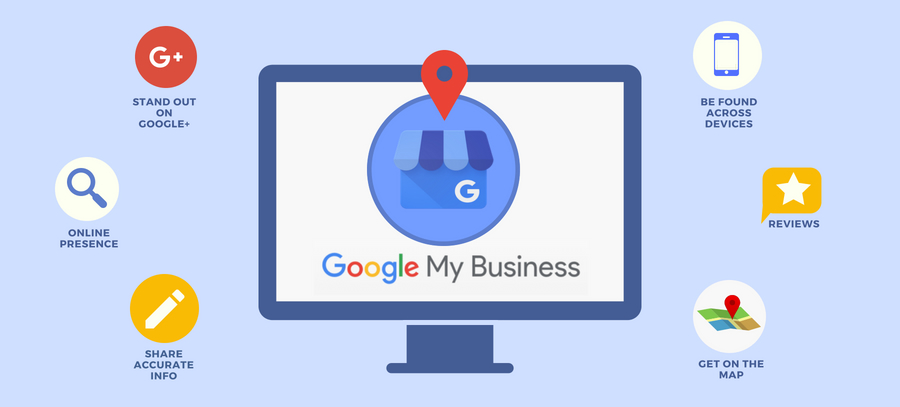
In Ottawa for example, your business could benefit from pages specific to locations you serve. These could include keywords such as “barrhaven endodontist” or “emergency dentist kanata”.
Often, it’s hyper specific pages like these that can drive success to your business.
Sounds simple right? Well, not if you are starting from the ground up. Even if you are doing it right, it can take months before you see results.
Looking to maximize your chances of succeeding with Ottawa SEO? Consider working with a full-service digital marketing agency like WebMarketers.
What’s next?
We want to help your Ottawa business see online success in 2021. Reach out today and we’ll give you a free website analysis and digital strategy.
